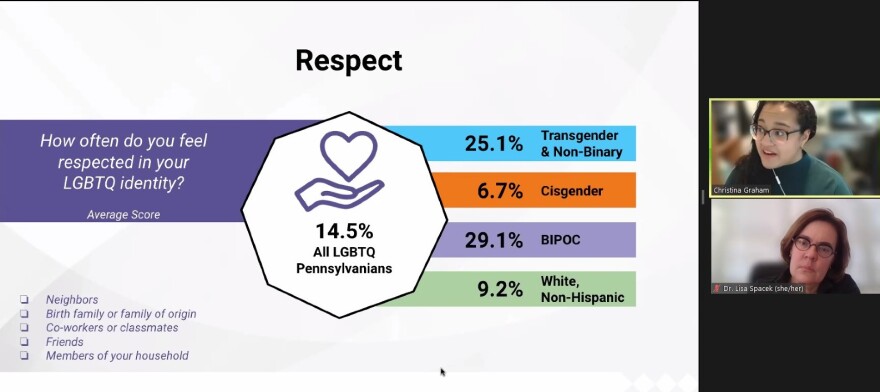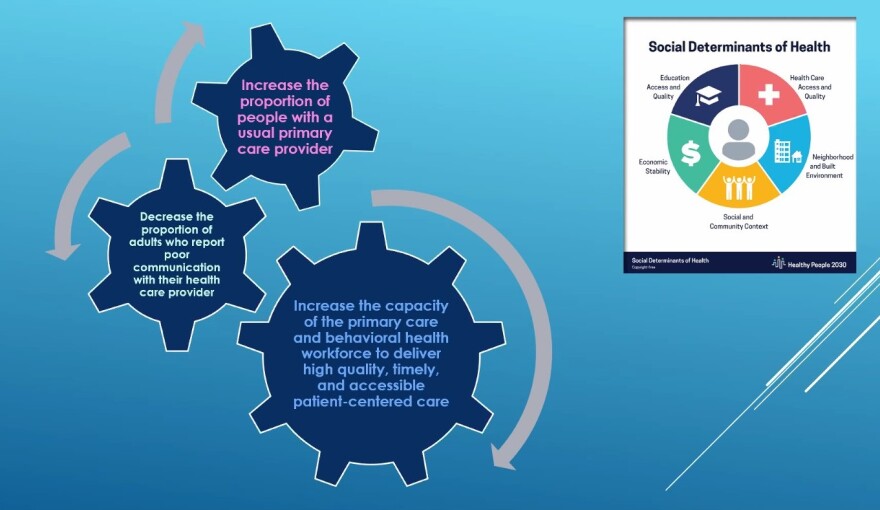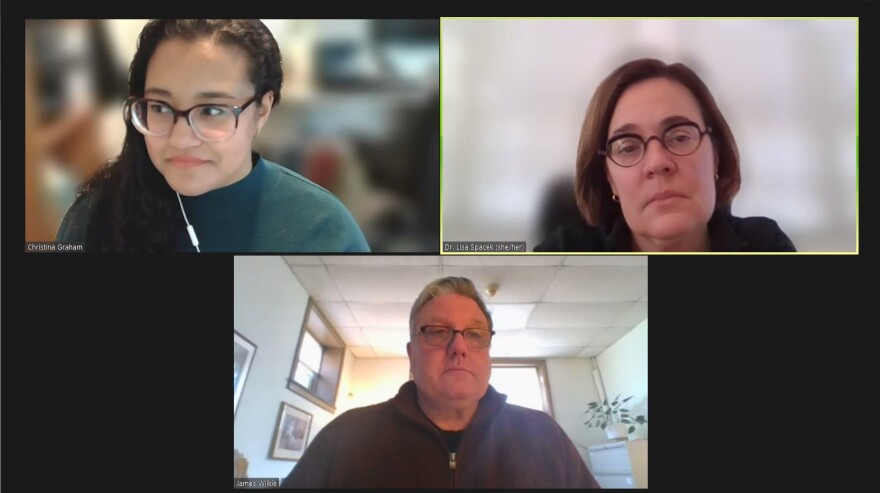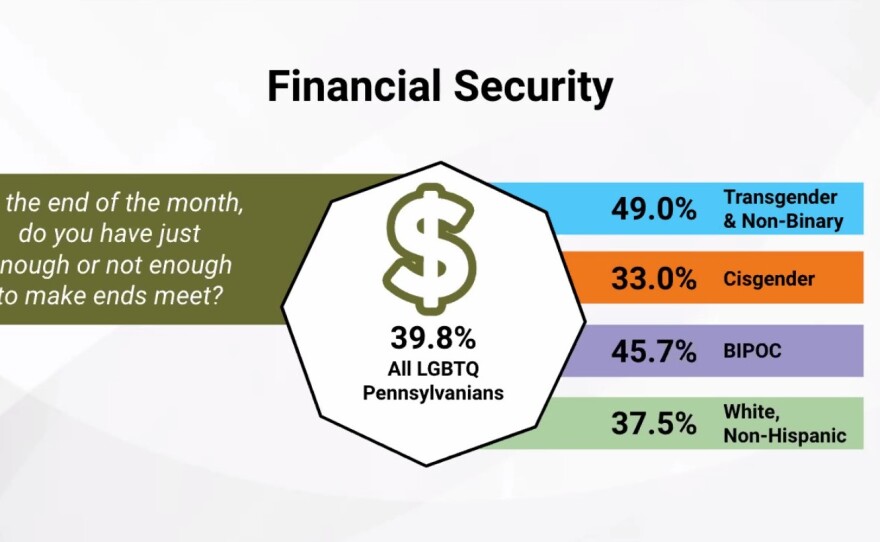ALLENTOWN, Pa. — LGBTQ people face many uncommon challenges to receiving quality healthcare.
Bradbury-Sullivan LGBT Community Center is working to teach people about those challenges and how to improve LGBTQ health outcomes.
- The first event of the 2023 PA LGBTQIA Health Summit featured discussion on how social factors affect LGBTQIA health
- The keynote speaker for the event was Dr. Lisa Spacek, an internal medicine and infectious disease specialist, who spoke about optimal care for LGBTQ patients
- The presentation featured data from the 2022 Pennsylvania LGBTQ Health Needs Assessment, a biannual survey that evaluates health needs and disparities among LGBTQ people in the state
The center on Wednesday held a virtual event about how social factors affect LGBTQIA health.
The keynote speaker for the event was Dr. Lisa Spacek, an internal medicine and infectious disease specialist. She said it’s important for health care providers to learn about such social factors so they can provide more than just standard care.
“What we want to move toward is optimal care that is patient-centered and grounded in a degree of empathy,” Spacek said.
About a hundred people attended from across the state, according to Bradbury-Sullivan Data and Evaluation Manager Christina Graham, who also spoke at the event.

The presentation featured data from the 2022 Pennsylvania LGBTQ Health Needs Assessment, a biannual survey that evaluates health needs and disparities among LGBTQ people in the state.
Bradbury-Sullivan Center collaborated with other organizations across the state to collect and interpret the data from the survey.
Wednesday’s event was the first of a series of presentations that will occur monthly until June, together called the 2023 PA LGBTQIA Health Summit.
The next presentation on April 12 will be about culturally-responsive health education.
Social determinants of health
In her presentation, Spacek spoke about social determinants of health, or social factors that can affect whether someone can access good quality medical care.
Among respondents to the health assessment survey, 27% said they had just enough money to make ends meet, and 12% did not have enough.
Also, 20% of respondents said they have experienced homelessness at some point in their lives. That number was larger for people of color, trans and nonbinary people and people with disabilities.
“If they don't know where they're sleeping tonight, it's very hard to address those kinds of issues."Dr. Lisa Spacek, an internal medicine and infectious disease specialist
Spacek said housing insecurity is a major barrier for many people when trying to address health issues.
“If they don't know where they're sleeping tonight, it's very hard to address those kinds of issues,” Spacek said.
Spacek also spoke about how healthcare providers sometimes do not support LGBTQ peoples’ identities, which can cause them to delay care or not seek it at all.
Nearly half of survey respondents reported fear in seeking health services because of past or potential negative reactions.
“This breaks my heart,” Spacek said. “The idea that sometimes, often, or always the respondents reported having had negative reactions — it really speaks to the concern that I have for our system of providing care.”
A quarter of respondents have not shared their LGBTQ identity with any of their health care providers. Spacek called this a “significant red flag” because those respondents likely have not developed a trusting relationship with any healthcare provider.
Optimal care for LGBTQ patients

Spacek said learning about such barriers to health care can help inform health care providers on how to give optimal care that is patient-centered.
The presentation included several suggestions for health care providers that were taken from written responses in the survey.
The suggestions included adding pronouns and preferred names to systems, seeking training on LGBTQ healthcare and being proactive in offering resources on care for marginalized groups.
Spacek said the most important thing providers can do is establish trust, which takes time and effort.
“We have to understand this to be not just a professional relationship, but a professional relationship grounded in trust,” Spacek said. “And trust is a very human thing; it doesn't just happen, you have to work on it.”
History of event
In previous years, the state Health Department and other organizations held an annual Pennsylvania LGBTQIA Health Conference, which Graham said was a different event with a similar goal.
Graham said people wanted an LGBTQ organization to have more say in how the event is run, so the Bradbury-Sullivan Center submitted a proposal to host this summit.
The state Health Department and other organizations still support the summit.





